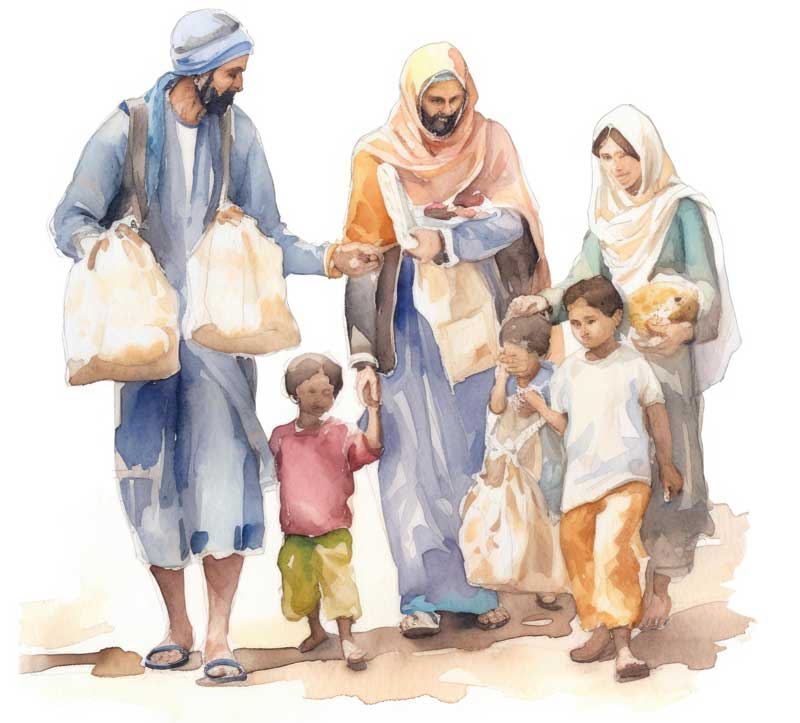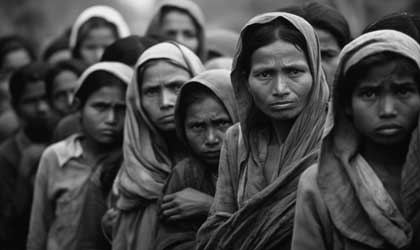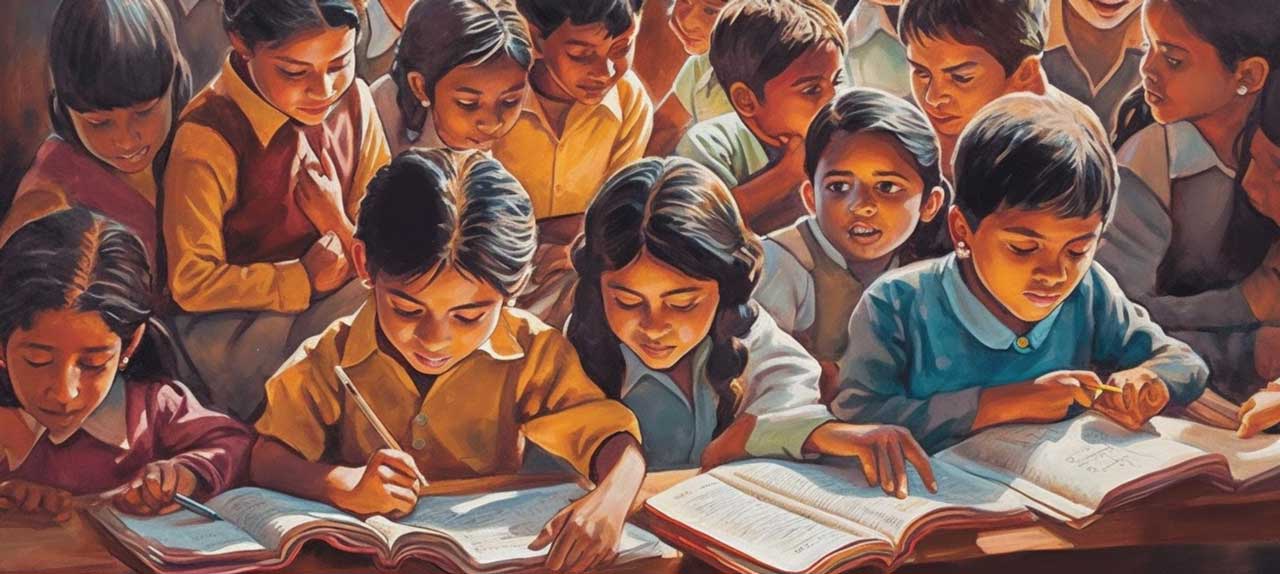Eradicating Poverty: A Global Imperative and Islamic Perspective
17th October is the International Day for the Eradication of Poverty, this day offers an invaluable opportunity for all of us to acknowledge the relentless efforts and hardships face by individuals living in poverty. This day serves as a platform for all poor to voice their concerns, amid our bustling lives that often revolve around our pursuits for a better and more luxurious existence, with many of us ensnared in the web of social media.
 At its core, the International Day for the Eradication of Poverty has always emphasized the active involvement of impoverished individuals in its commemoration. This underscores their determination to utilize their knowledge and experiences to contribute to the global endeavor of eradicating poverty. According to World Bank, Poverty is pronounced deprivation in well-being, and comprises many dimensions.
At its core, the International Day for the Eradication of Poverty has always emphasized the active involvement of impoverished individuals in its commemoration. This underscores their determination to utilize their knowledge and experiences to contribute to the global endeavor of eradicating poverty. According to World Bank, Poverty is pronounced deprivation in well-being, and comprises many dimensions.
Eradicating poverty is not only a moral implication but also essential for global peace and stability. Several interconnected reasons highlight the critical relationship between poverty eradication and world peace:
Reducing Inequality: Poverty is often a result of extreme income inequality. When a significant portion of a population lives in destitution while a small segment enjoys immense wealth, it creates resentment and social unrest. Reducing poverty helps in bridging the wealth gap, which is a crucial step in maintaining social harmony.
Preventing Social Unrest: Poverty is a breeding ground for social unrest and conflict. By addressing poverty, nations can reduce the conditions that lead to civil strife and instability.
Promoting Education: Poverty often restricts access to education, and an uneducated population can be vulnerable to misinformation and radicalization.
Economic Stability: Poverty weakens a nation’s economic stability and make it more prone to making a nation more resilient in the face of external shocks and crises, including conflicts and wars which we have witnessed in many African nations recently.
Human Dignity and Social Justice: Poverty represents a violation of basic human rights and dignity.
 ISLAM PERSPECTIVE ON POVERTY: Islam seeks to address and eliminate all forms of deprivation, emphasizing the importance of ensuring the welfare of all members of the community. Zakat, one of the Five Pillars of Islam, holds profound importance for addressing poverty. It stands as a beacon of societal welfare, highlighting the obligation of wealth redistribution among masses.
ISLAM PERSPECTIVE ON POVERTY: Islam seeks to address and eliminate all forms of deprivation, emphasizing the importance of ensuring the welfare of all members of the community. Zakat, one of the Five Pillars of Islam, holds profound importance for addressing poverty. It stands as a beacon of societal welfare, highlighting the obligation of wealth redistribution among masses.
Moreover, we can grasp the significance of reducing poverty by understanding that when an economy experiences inflation, people often struggle with reduced purchasing power. This downturn in consumer spending which in turn lead to decreased production within the economy, ultimately affecting overall GDP.
Thus, mechanisms like Zakat and Sadaqah are vital to ensure that impoverished individuals receive the necessary resources to meet their basic needs, such as food and clothing.
Narrated by Abu Hurayrah: The Prophet Muhammad (ﷺ) used to say: “O Allah, I seek refuge in Thee from poverty, lack and abasement, and I seek refuge in Thee lest I cause or suffer wrong.” – Sunan Abi Dawud 1544
 Islamic finance plays a pivotal role in the battle against poverty. It offers alternatives to conventional banking systems, such as interest-free loans and shared-risk investment models. Islamic financial institutions prioritize investments in sectors that uplift marginalized communities, foster job creation, and promote sustainable development. This, in turn, facilitates inclusive economic growth and serves as a powerful instrument in the quest for poverty eradication.
Islamic finance plays a pivotal role in the battle against poverty. It offers alternatives to conventional banking systems, such as interest-free loans and shared-risk investment models. Islamic financial institutions prioritize investments in sectors that uplift marginalized communities, foster job creation, and promote sustainable development. This, in turn, facilitates inclusive economic growth and serves as a powerful instrument in the quest for poverty eradication.
Written by: Mohd. Talib Khan





